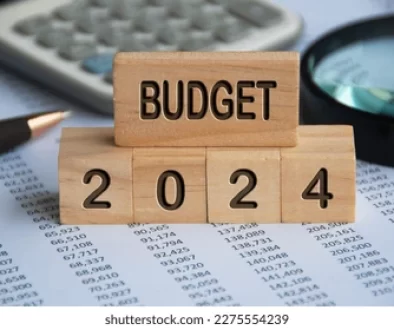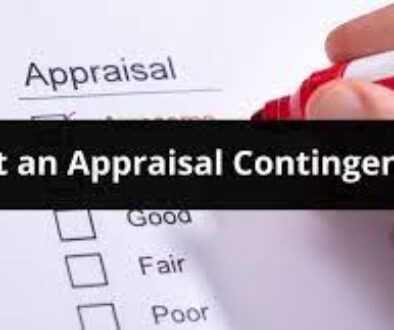Origination Fees
Origination Fees
When funding your mortgage loan, a mortgage lender assesses your qualifications before deciding whether to approve the loan. In exchange for giving you a mortgage to buy or refinance a home, lenders charge a variety of fees that ultimately help them provide more home financing to other borrowers. One of these fees is the mortgage origination fee.We’ll review the mortgage origination fee (or lender origination fee), how to calculate it and when you pay it. We’ll touch on why they exist, whether all lenders charge origination fees and some factors to look out for when comparing lender costs.
What Is A Mortgage Loan Origination Fee?
A mortgage origination fee is a fee a lender charges to cover the cost of processing a borrower’s loan application. It’s typically between 0.5% and 1% of the total loan amount. You’ll also see other origination charges in your Loan Estimate and Closing Disclosure if prepaid interest points are associated with getting a particular interest rate.
Mortgage Loan Interest Discount Points
Also called mortgage points or discount points, prepaid interest points are points paid in exchange for a lower interest rate. One point equals 1% of the total loan amount, but you can buy points in increments of 0.125%.
If you’re trying to keep closing costs at bay, you can also take a lender credit, which amounts to negative points. You get a slightly higher rate in exchange for lower closing costs. Rather than pay closing costs upfront, you can roll some or all closing costs into the loan.
The lender origination fee covers a variety of costs, some of which may be broken out in your Loan Estimate. The fee covers the steps of processing your application – collecting all documentation, scheduling appointments and filling out all necessary paperwork – as well as underwriting the loan.
What is Mortgage Underwriting?
Underwriting is the process of verifying that you qualify for a loan. The underwriter must verify all income and asset documentation and any other requirements associated with the loan. Lenders also verify that the property meets the loan’s requirements, including coming in at the right value and being safe. Estimating the value of the home is done in conjunction with an appraiser.
How Much Are Loan Origination Fees?
A loan origination fee is typically expressed as a percentage and can cost between 0.5% and 1% of the total loan amount plus any mortgage points associated with your interest rate.
When Do You Pay The Mortgage Origination Fee?
Mortgage loan origination fees are usually paid as part of closing costs,which may include the following, depending on whether the transaction is a purchase or refinance:
Mortgage Lender Origination Fee
The fee can cost anywhere between 0.5% and 1% of the total loan amount before prepaid interest points and covers the cost of processing and underwriting your loan.
Application Fee
Lenders often treat this fee a bit like a deposit. You get it back if the loan closes, but if it doesn’t, you may lose a portion or the entire fee. That’s because lenders often apply the application fee toward covering the cost of an appraisal or credit check.
Appraisal Fee
If it’s not covered by the deposit or not covered in full, you’ll pay separately for the cost of any home valuation and safety check. If the lender must determine the boundaries of the property, a survey fee may roll into this.
Credit Check
You’ll pay for the credit check at closing if it isn’t covered by your application fee. The credit report fee is typically around $30.
Mortgage Insurance
With Federal Housing Administration (FHA) loans, an upfront mortgage insurance premium gets paid at closing. U.S. Department of Agriculture (USDA) loans charge an upfront guarantee fee or funding fee, which works similarly to mortgage insurance. In both cases, a percentage of the total loan amount is paid at closing.
If you get a conventional loan with a down payment of less than 20%, some lenders will allow you to pay for mortgage insurance upfront, effectively lowering your monthly mortgage payment.
VA Funding Fee
Department of Veterans Affairs (VA) loans don’t have mortgage insurance, but there is a funding fee that’s anywhere between 1.25% and 3.3% of the loan amount, depending on the size of your down payment, your service status, whether it’s your first time using a VA loan and whether it’s a purchase, refinance or VA Streamline. The funding fee can be paid at closing or folded into the loan amount.
Borrowers receiving VA service-connected disability benefits, eligible surviving spouses of veterans and Purple Heart recipients are exempt from paying the funding fee.
Prepaid Mortgage Interest Points
If you buy down your interest rate, you’ll pay for the points at closing. By buying down your interest rate, you can save money over time.
Title Insurance
Although this cost is usually paid by the buyer, it can be negotiated. In all cases, either the buyer or seller must pay for a lender’s title policy, which protects the lender if someone else comes along with a claim to your home. The buyer can purchase an owner’s title policy, which also covers them in case something like this comes up.
Escrow Fees
An escrow account during the closing process helps protect home buyers and sellers by ensuring the money for closing costs isn’t taken out of the account without authorization.
Settlement Agent
The settlement agent oversees the closing and serves as a notary. They must make sure you understand what you’re signing and that everything goes smoothly.
Attorney Fees
In some cases, an attorney must be present at the closing in accordance with state law.
Accrued Interest
When you close on your mortgage, during the period between closing and your first mortgage program, your lender will usually have you pay daily interest charges until your first payment.
Homeowners Insurance
You usually pay 6 – 12 months of homeowners insurance upfront and set up an escrow account, depending on the size of your down payment.
Property Tax
You must pay up to a year of property tax when you close on your mortgage. If you’re purchasing a home, you’ll also pay a property tax research service. The service estimates your property taxes as closely as possible so you don’t end up with surprise costs. The service will also let your mortgage lender know if you miss any property tax payments.
Recording Fees And Transfer Taxes
When you buy a home, your county or other local authority must record the transaction in the public register, and you must pay for that.
Real Estate Agent Commission
With a purchase, this is typically 6% of the purchase price, which gets split between both agents. While the real estate agent’s commission is often paid by the seller, who pays is negotiable, which is why we’ve included it here.
Why Are Mortgage Origination Fees Assessed?
Every lender has service costs associated with originating a loan, and origination fees cover some of these costs. The costs can include overhead for their business or paying bankers, underwriters and scheduling appraisals. The goal is to generate enough money to provide more loans to borrowers.
Do All Lenders Charge An Origination Fee?
Not all lenders charge an origination fee, but many do as compensation for their services. The origination fee is charged at the discretion of each lending institution.
Some lenders make a big deal of advertising home loans with no origination fee. There’s nothing wrong with this, and it can benefit borrowers who want to save on closing costs. When comparing loan options, you’ll always get a better idea by comparing the APR and interest rates. If the interest rate isn’t high, a lender may try to increase the APR by charging other fees under a label other than “origination.”
Hidden Costs Of The No-Origination-Fee Mortgage
If a mortgage has no lender origination fees, in most cases, you’ll end up paying a higher interest rate over the course of the loan. Depending on how long it takes you to pay off the loan, it may cost up to tens of thousands of dollars over the life of the mortgage. While you save money upfront, the mortgage may cost you way more in the long run.
If the interest rate isn’t any higher, the lender may be naming a fee something else, like an underwriting or processing fee. These types of fees are what the origination fee is meant to cover, so it’s the same thing.
Other Mortgage Fees That Add Up
As someone buying or refinancing the home, it’s important to understand that you can be charged a fee at various points. While most mortgage fees not related to the interest rate you get are closing costs, there are other fees. Let’s run through them.
- Rate lock: If you lock your interest rate to protect yourself from the possibility of interest rates rising in the near future, you’ll pay a rate lock fee. The shorter the rate lock period, the cheaper it will be.
- Commitment fees: A lender must set aside funds for a loan before they issue it. In exchange for the guarantee of a loan, they charge a commitment fee. The fee is a hedge against changing market conditions. Once the loan is approved, the borrower can receive the money at closing.
- Underwriting or processing fees: If you see an underwriting fee (the fee to make sure you qualify for the loan) or a processing fee (the fee to process your application), what you’re actually seeing is an origination fee masquerading as something else.
Higher Mortgage Loan Interest Rates
If the mortgage has no origination fee – and for this discussion, let’s include fees that serve a similar purpose but go by a different name – the lender will likely charge a higher interest rate.
Debt-To-Income Ratio (DTI) And Mortgage Loans
Another important thing to know when you opt for a higher monthly payment is that it will make your debt-to-income-ratio (DTI) higher because you’re spending more every month paying an expensive mortgage and your existing debts. DTI is a key metric used by lenders. A high DTI can impact your ability to qualify for other loans.
Your monthly mortgage payment shouldn’t be so high that it hinders your financial flexibility in the future. A no-origination-fee loan likely means a higher interest rate, which means a higher monthly payment and a significant increase to your DTI.
Comparing Interest Rates And Annual Percentage Rates (APRs)
When lenders explain what fees they charge – or don’t charge – it’s important to figure out what you’ll be paying over the life of the loan and weigh the benefits and downsides of a no-origination mortgage. One way to do a quick comparison is to look at interest rates.
You’ll see two types of interest rates as you shop around for the best rates. The first one is the interest rate on your monthly mortgage payment. The second one is the annual percentage rate (APR), and it will be higher. APR is your interest rate with closing costs factored in. When comparing lenders and loan options, the APR is the best way to get a precise picture of how much a loan will cost.
Mortgage Origination Fee FAQs
Let’s dig into some frequently asked questions home buyers have about origination fees.
Why do mortgage origination fees exist?
Mortgage loan origination fees exist to help lenders cover certain expenses while processing and underwriting a mortgage. Lenders that don’t charge an origination fee may make up for these expenses by charging a higher interest rate.
How can you finance a mortgage loan origination fee?
Like other closing costs, the mortgage origination fee is due at closing. So you should expect to pay the fee upfront. To help finance the origination fee, try to negotiate seller concessions.
Are loan origination fees negotiable?
While you can negotiate which closing costs a seller may pay on your behalf, a lender will likely be less willing to negotiate their origination fee. Remember to shop around before you choose a mortgage lender. Not all mortgage companies charge the same amount for fees.




